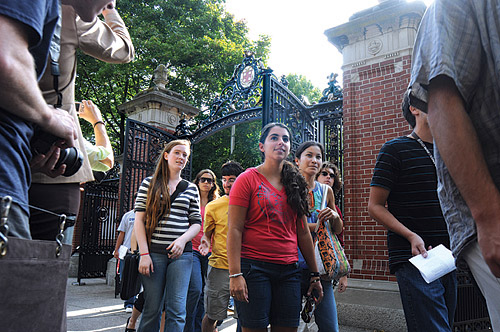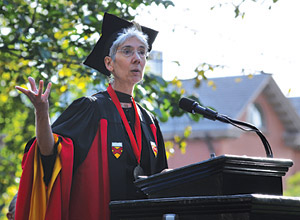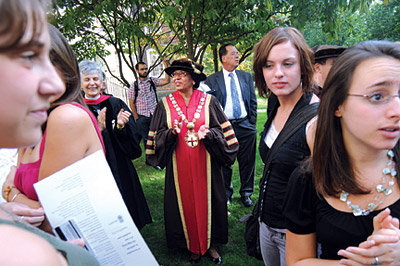President Ruth Simmons posed for photos and accepted dozens of hugs from incoming students after they marched through the Van Wickle Gates, September 9. But when she stepped up to the lectern to open Brown's 246th academic year, it was clear that she wanted the incoming students to know that times were tough.

The keynote speaker, the Stephen T. Olney Professor of Natural History and Professor of Biology and Environmental Studies Johanna Schmitt, also sounded a grim note, though her subject was global warming. "Humans are transforming the environment at an utterly unprecedented rate," she said. "It will take billions of years to regain the diversity that is being lost."

Schmitt didn't leave the class of 2013 hopeless either. The biologist tied her address to the 150th anniversary of the publication of Charles Darwin's On the Origin of Species, in which he laid out his revolutionary theory of natural selection. All first-year undergraduates had been asked to read over the summer The Beak of the Finch, which is about scientists studying evolutionary changes in finches on the Galapagos Islands. Schmitt said that while natural selection may seem to have "bleak implications for human beings," this view is now changing. She said the latest research suggests that certain organisms are not simply victims of the random and destructive forces behind natural selection. Instead they create "niches" for themselves—essentially micro-environments in which they survive and thrive. Human society is the niche people created to counter evolution's more draconian tendencies, and Schmitt said it holds the power to help us overcome the devastating evolutionary forces we've unleashed on the planet.

See videos of Opening Convocation at http://today.brown.edu/articles/2009/09/convocation-2009-video.





